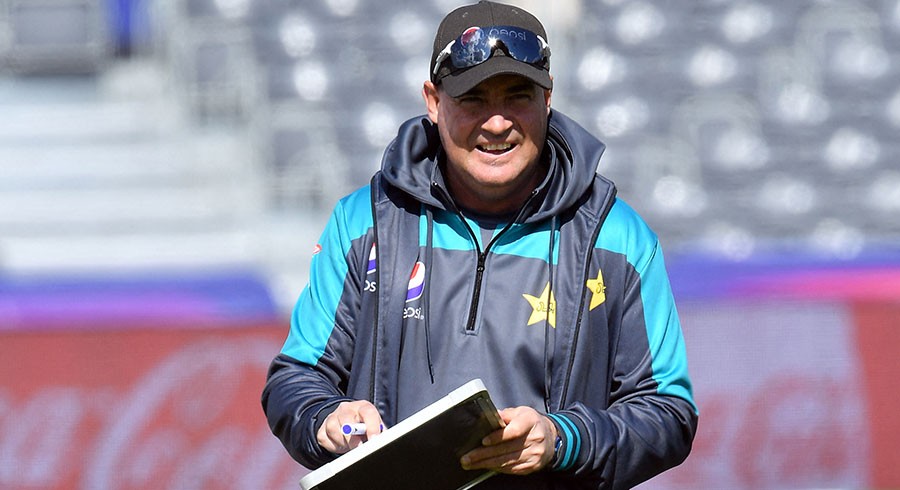
In a shocking revelation, former Pakistan cricket team director Mickey Arthur has exposed the political turmoil and calculated moves that led to the sacking of the coaching staff, including himself, and the removal of captain Babar Azam. Arthur, who spoke exclusively to ESPNcricinfo, disclosed the orchestrated plan that unfolded during a performance review meeting at Lahore’s Gaddafi Stadium in the aftermath of Pakistan’s underwhelming World Cup campaign.
The saga began when Arthur found himself on a balcony, puzzled and awaiting a meeting with PCB chairman Zaka Ashraf. Little did he know that this would mark the beginning of the end for him and his coaching team. The review meeting, ostensibly about the World Cup, took an unexpected turn when Ashraf informed Arthur that the entire support staff and captain would be replaced.
“At the end of the World Cup we went back to Lahore,” Arthur tells ESPNcricinfo in his first interview since his exit. “We had planned the whole Australian tour, so much so that we had thought about teams and combinations. We arrived in Pakistan and there was silence initially.
“And then Zaka wanted a review meeting of the World Cup. We went to that, I did a presentation, Rehan [ul Haq, the team manager] did a presentation. Grant [Bradburn, the head coach] spoke, the whole management team was in this meeting.
“There was a recess and we were starting a camp two days later. I was still on the balcony organising with Usman Wahla what our logistics were going to be. And I wondered why there was such a break in this review. And then I got a little whisper in my ear that Zaka wanted to see me in a separate office in the museum at the HPC [High Performance Centre]. I went in, he asked me a whole lot of questions and then he said, ‘look, we’re going to remove the whole support staff and captain, basically, and that was it.'”
The subsequent appointments raised eyebrows, particularly the elevation of former player Mohammad Hafeez, with no coaching or management experience, to the positions of team director and head coach. Ashraf defended the decision, praising Hafeez’s patriotism and cricketing experience. However, Arthur, currently under contract with Derbyshire, highlighted the challenges of managing Pakistan cricket remotely and questioned the logic of coaching via Zoom.
Further complicating the situation was the removal of Babar Azam from the captaincy, a decision clouded in ambiguity. Ashraf maintained that it was limited to ODI and T20I formats, but conflicting reports suggested otherwise. The uncertainty surrounding Azam’s removal added to the chaos within the team.
As Arthur pointed out, the entire episode appeared to be a charade, a carefully orchestrated plan to dismiss the coaching staff without due process. The subsequent tour of Australia and New Zealand saw Pakistan’s cricketing fortunes plummet, with disappointing performances in both Test and T20 series.
“The whole review was just a charade,” Arthur says. “I would have had a bit more respect for Zaka if he’d said it straight out. The way I realised the whole thing was a charade was Mohammad Hafeez was already sitting at the PCB offices and that’s why Zaka got into trouble because our meeting went on and on and on.”
Zaka did his work cleverly and left…
The departure of Zaka Ashraf from the PCB added another layer of instability to the cricketing body. Ashraf, acting as chairman in a caretaker capacity, faced legal restrictions on making significant decisions, raising questions about the legitimacy of the coaching staff’s removal.
“I was savvy enough in my contract negotiation to put in a clause that there was a three-month termination settlement, not a one-month settlement. We weren’t going to resign because the minute you resign, you walk out and that’s it. For all the efforts we put in, the coaches and I deserved the three-month settlement.
“The PCB said we would be reassigned, but that was impossible. You can’t reassign people who have signed contracts. You can’t just reassign the team director, head coach and batting coach of the national team. That was a charade to get rid of us.”
Despite expressing openness to a return to Pakistan, Arthur’s enthusiasm has waned, citing disappointment in the current state of Pakistan cricket. He emphasized the need for a supportive structure for the talented players, highlighting the dangerous shift towards individualism when players feel insecure.
“I still followed Pakistan cricket and I’ll always follow it,” he says. “But the vigour and thirst and passion I have for Pakistan cricket waned a little bit after that. To be brutally honest, I think Pakistan cricket is in a very disappointing place. There’s a massive amount of talent there, There are some world-class players, not just talented players. They’re not given the support structure that they need to flourish.
“The one thing we had in 2019 and from the time we won the [2017] Champions Trophy to the end of it was an environment where the players were pushed. There was a lot demanded of them, but I backed every one of those boys 100%. So then they went out and played for the team instead of playing for them themselves.
“When there’s security within the environment, Pakistan is very good. When there’s that insecurity, players start playing for themselves instead of the team because they’re thinking of the next tour, and the next contract. That’s a dangerous place to be in, and that’s kind of where Pakistan cricket is now. And that’s something that’s very disappointing and sad for me.”
The revelations by Mickey Arthur shed light on the intricate political maneuvering within Pakistan cricket, exposing a turbulent environment that has left the team in a precarious position. As the cricketing nation grapples with internal strife, the focus now turns to rebuilding and restoring stability within the team.


